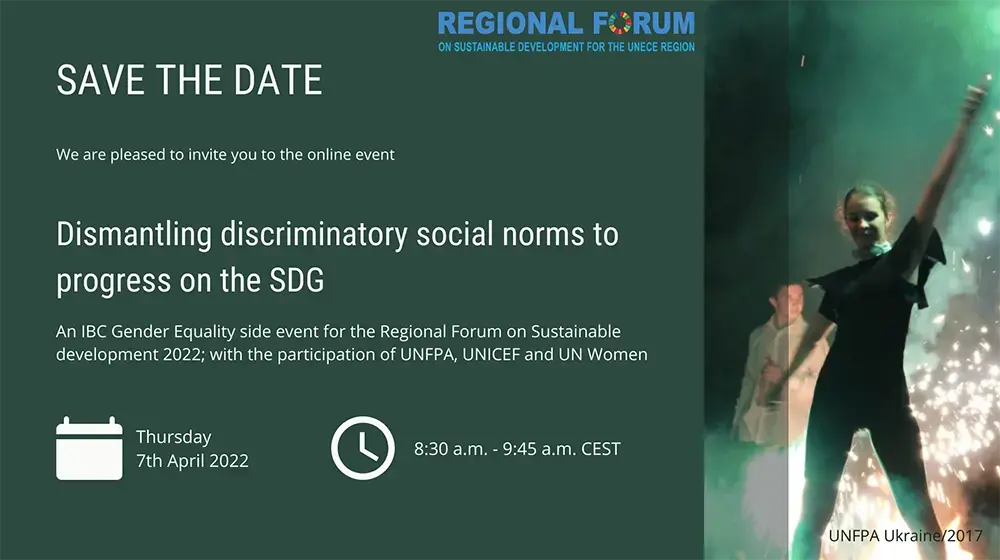BACKGROUND
Social norms are unwritten rules that guide behaviour of communities and individuals. They influence what people think, feel and do, and give people expectations of what others do and approve of. In Eastern Europe and Central Asia, they drive gender inequality, discrimination against women and girls, contribute to gender-based violence including harmful practices such as child marriage and gender-biased sex selection, and limit women’s access to rights, resources and wellbeing.
Positive social norms change can accelerate progress in SDG 5. It has the potential not only to progress gender equality, but also help end violence and discrimination against women and girls, and increase demand and access to services.
OBJECTIVES
This panel will showcase country level work that tackles limiting and deep-rooted norms towards transformative gender equality results. It will bring together government officials and CSOs to generate a constructive dialogue and highlight the collective progress, lessons learned and recommendations. By showcasing experiences in changing discriminatory social norms it will also contribute with evidence on the dynamics that drive gender inequalities, inclusive growth, and progress in all the SDGs.
CONTRIBUTORS
UNFPA, UN Women and UNICEF


